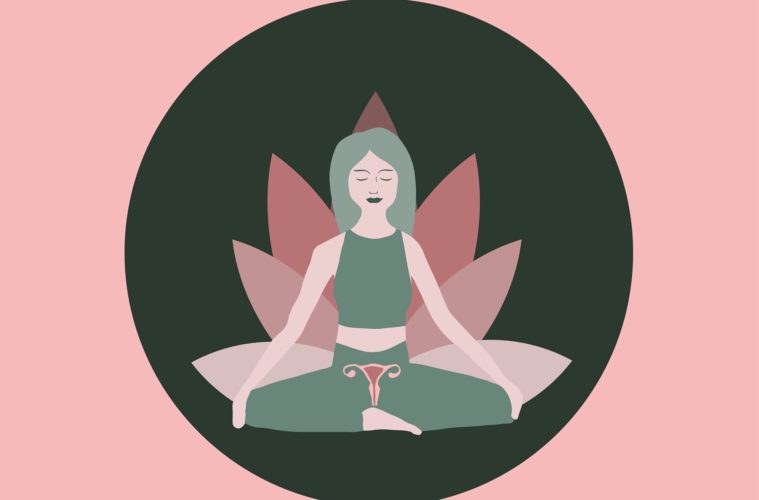Like many women, I have had my period a couple of times since the lockdown began – and strangely enough, I enjoyed them more than ever. Our bodies have a major role in our lives, and as most of us are still not leaving the house, during this time we could learn to appreciate all its weird functions that may normally feel like a hindrance in our regular, daily lives.
Like many, I loathed my period during my teenage years: it was an unnecessary, embarrassing, untidy thing. A sign of my body growing up faster than my mind, working like a grown-up woman’s, while my thoughts stayed childish. To me, at the time, it seemed to have no purpose, no meaning; it took me years to learn how it worked, and even then I still ended up often miscalculating the hours between necessary bathroom visits.
In recent years, my opinion has shifted: the period became a small casualty in my routine, but important manifestation of my femininity. It transformed into something I welcomed every month, a sign of my fertility, a feeling of womanhood, a process both natural and cleansing. Instead of feeling disgusting, I felt whole. This view stayed with me into my early twenties as well.
Only during the lockdown have I discovered a new, strange sensation: the calming effect of my monthlies.
Maybe it is the regularity or sense of normality it brings: even though the world has turned upside down, my body is still doing its usual work. A million things have changed, but my body hasn’t disappointed me. In these troubling and uncertain times, I seek comfort in my period and in my body’s amazing ability to stay consistent, even if I fail to do so in other regards during lockdown.
I am aware of the fact that I am notably lucky: I bet nurses fighting in the frontline, or other essential workers, may still experience a feeling of disruption or pain during their menstruation. Many others have lost their jobs or are currently caring for children or elderly relatives and once again, periods remain a hindrance or annoyance in these scenarios. Way too many women can’t afford sanitary products monthly, some women face incredible pain due to endometriosis and many others cannot see a doctor or have painkillers prescribed. And of course, not all women menstruate, and for some, this can also cause pain.
I believe that I can be grateful for the comfort I’m finding in my monthly cycle while also being conscious about my privileges and others less advantageous situations. I feel I am able to cultivate a new knowledge inspired by this recent gratitude for my period; I walk around my apartment in comfy clothes, embracing how feminine and feminist I feel, as a product of experiencing my period this way.
And hell yes, I think about it, talk about it, write about it. It feels fabulous. I did not just learn to talk about my period, I have been quite open about it for a while now. But for those who have been a bit shy about their menstruation, I would recommend using this time to get comfortable enough with this body function, a function that is one of our most natural capacities yet has been regarded as revolting by society for a long time. You might as well want to research recent, empowering works on periods: I would recommend the book Period Power by Maisie Hill, or the documentary short film, Period. End of sentence. on Netflix.
If ever, this is a great time to embrace your femininity. To study what your body craves or does before, during and after menstruation. To experience our cycles consciously, and become aware of what feels the most helpful during our time of the month, and most essentially, to start being open about it – with ourselves, our flatmates, and friends.
However, writing about periods is not for everyone. You may never feel comfortable spelling the word menstruation, or even saying it out loud – and that is perfectly fine. But if after reading this article you will feel a bit less awkward or uncomfortable about it, then I feel I’ve accomplished my goal.
Written by Lili Rutai.
Lili is a sociology student and freelance journalist based in Budapest, writing about social issues, gender equality, minorities, arts and literature. She is also a podcast addict and the co-host of Vénusz Projekt, a feminist podcast in Hungarian.
Illustrated by Lazy Zso.

